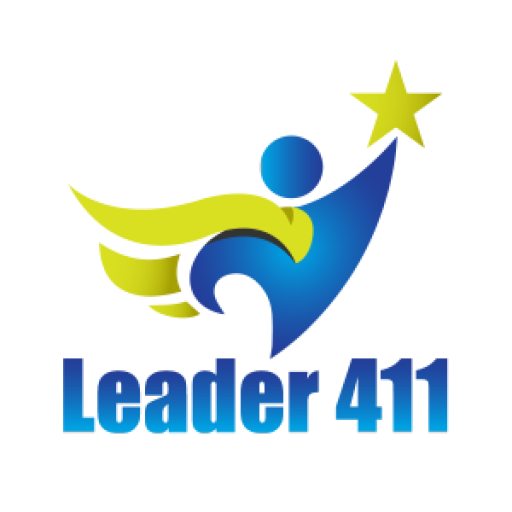The Power of Resources: In 2021, there’s a lot of focus on the self. ” Mindset,” “Atomic Habits,” “Winning the War in Your Mind,” “Believe It” and ” How to Win Friends and Influence People ” are all some of the most popular titles on Amazon at the time of writing this article. Focusing on your own confidence is an excellent idea, but it’s not all about the self. It’s also about our resources.
Self-efficacy and Means efficacy
Think of confidence as broken into two parts, what you believe you can do and what you believe can do with your available resources. In research we call this self-efficacy and means-efficacy:
- Self-efficacy is our confidence on our ability to complete a project. It has four main components that influence a person’s self-efficacy. Here they are in order of influence:
- past success/experiences (Have we successfully done this before?)
- other similar people success (Have others similar to us done this before?)
- other’s belief in us (Do other people we respect think we can do this?)
- our own physical and emotional state (Do we feel like we can accomplish this?)
- Means efficacy is our confidence in our ability to complete the project with the provided means or resources.
A resource is anything that is provided to an employee to help handle the burden of job demands. This could be tools for auto mechanics, computers for engineers, and a hitting coach for a baseball player. Great resources give us added confidence in successful job completion.
In other words, means efficacy is the other half of the puzzle. Your confidence to complete a task plus the confidence in your resources = total confidence for success!
Means Efficacy Example: No Resources Considered
Here’s an example demonstrating how self and means efficacies could play in a scenario:
Picture this. Let’s say we want to create a program to analyze the contents of our shelves in our pantry and refrigerator, then give us dinner recommendations based on what we have in stock. That would be an excellent program! To do this, we’d hire a tremendous programmer to create the software and install the cameras to analyze our shelves and sort through millions of recipes to give us the best options. No doubt the programmer we hire would have great confidence in her own abilities to accomplish the task. We would hire a programmer based on his/her experience. If we were to talk through the four components of self-efficacy of our programmer it would look something like this:
The programmer feels confident the project can be accomplished because:
- She has programmed similar and/or much bigger projects before.
- She knows people that have done this before and feels confident she can match their ability
- Other people she knows and respects also feel she can do it and are encouraging her to do so.
- Finally, she feels physically and mentally capable to tackle this challenge.
Surely the programmer we hired would feel she was able to accomplish the task with her high self-efficacy.
Means Efficacy Example: Poor Resources
Let’s change the scenario a bit. Let’s say we tell this programmer that she has to use our equipment. We provide a laptop that’s running Windows XP, outdated processors, missing keys on the keyboard, and a cracked screen that glitches if she bumped it. Oh, and the cameras that would be needed to keep a tally of our pantry and fridge contents would be old analog security cameras from the 1980’s. Now, how would the programmer feel about creating the software for us?
The programmer would still feel confident on her own abilities. She’s still had tremendous success in the past. She still has the respect of her colleagues and still feels physically and mentally capable, but she will most likely doubt the success of our project because of her limitations with resources. It has little to do with her ability, but a lot to do with the resources she’s been provided.
Means Efficacy Example: Great Resources Provided
Change the scenario one more time. Give her the best laptop on the market along with the best wireless smart cameras. Provide her a budget to get whatever else she needs. Not only will she have great confidence in her skills, but she’ll have tremendous confidence in her resources. Most likely she’ll feel like she can accomplish the task with ease.
Research with Means Efficacy
Several studies have been conducted with means efficacy. Two were conducted by Dov Eden at Tel Aviv University. The first was with the Israeli Air Force machinery training. Two groups were undergoing training. One group received the standard training every recruit receives. The second group received a training that highlighted the power and importance of the anit-aircraft machinery used by the Israeli air force. The second group tested far better and retained more information when they believed in the product versus those that were told nothing about the product.
The second study was in the Israeli government. All the computers were to be shut down for a security update. Half of the building was told nothing about the update while the other half were told the updates were expensive and were amazing upgrades to maximize computer output. Those that were told their computers were updated to maximum efficiency outperformed the other half tremendously even though all the computers received the same security upgrade that had nothing to do with efficiency.
These studies have been replicated with college students. A group of students were told that they received a top of the line learning management system (CANVAS, Blackboard) that the top universities used. Another group of students were told nothing. The students that believed they had actually received a top-of-the-line learning management system equal to the top schools spent more than twice the time using the learning management system and showed significantly better grades even though they had the same LMS as the other half of students.
I replicated this study myself during my dissertation while training movie theater employees at 16 theatres across the southwest. When people believe they have something worth using, they tend to use it more and show an increase in performance.
Means efficacy’s Impact on Performance
There are several reasons why confidence in one’s means could increase the potential for project success:
- Providing excellent resources shows the employee that they’re valued. I remember my first day at a large company. I was handed the nicest laptop I had ever used and a carrying case. I was told to expect resources like this because I worked at a top company. I was very impressed. As shallow as it may seem, that laptop definitely increased my commitment to my organization.
- Shoddy equipment is demoralizing. Each success in a project motivates us to push forward. Success causes a dopamine increase (similar to gambling) that has a positive influence in motivation and performance. Failure can cause a cortisol release which increases stress and emotional discomfort. Frequent mini-failures in the workplace can cause increases in frustration and negative emotions towards the team or organization or both. I managed a large manufacturing team. When I first took over the team, I realized our inspection tools were not reliable. Lightbulbs were burnt out. Mirrors were broken. Pieces were missing. Batteries were dead. My team would be geared up and ready to accomplish their assignments, but then spent ten minutes tracking down tools that actually worked. Then, instead of jumping back on the job, they spent the next several minutes complaining to the other employees about the time wasted looking for tools. This was, unfortunately, a regular occurrence. We fixed the tool situation. Morale improved almost immediately. Resources matter!
- Humans believe that new, nicer equipment can save time or make up for our lack of ability. Ever see a batter hold a new bat? It’s almost like they can visualize an increase in on-base percentages or homeruns per season. They feel different holding a new bat. A wide receiver with a new pair of gloves feels more hopeful. A gamer with a gaming system. We may know we are weak in areas, but good resources give us more confidence.
- Means efficacy increases hope. Hope has two components, pathway and agency. Without appropriate means to accomplish a task the pathway can become too limited and decrease hope. Read more about the implications of hope here.
Means Efficacy in an Organizational Context
Obviously many organizations cannot go out and purchase all new equipment for all of their employees. If you can, wow! Excellent. Your employees will most likely appreciate it.
If not, that’s Ok. There are things you can do in order to help increase means efficacy:
- Help people understand the valuable resources they do have. “Sell” them on what they’ve been provided. During my study with movie theater employees, these were mostly 16-18 year old employees that were not happy about waking up early to go to a mandatory training on the customer experience. Overall, we had a great time during training, but the groups that were told this training was similar to the same training that was provided to top organizations such as Disney, Universal, Neiman Marcus, Porsche, etc. seemed to find the training more enjoyable and useful.
- Train people on the usefulness of their tools. I haven’t seen an actual data point on this, but I do think most people are not using their resources, especially their computer resources, to their fullest extent. The teams I work with are still discovering what Zoom and Microsoft Teams can do for them and we’ve been using these platforms on a regular basis for months. Show people what their resources can do for them and how it can make their lives easier. They’ll feel more competent at their jobs and be more motivated to work.
- Listen to your employees. Taking over that manufacturing team was daunting. They were all smarter, more experienced and better at their jobs than I was…by far! When I saw the problem with the tools, it was an easy win. Total cost was under a thousand dollars, a small amount with tremendous returns.
Summary
In summary, it’s not just about top talent. It’s not just about being an inspiring leader. It’s also about the resources we provide. When our employees perceive us providing excellent resources they feel more supported and feel more capable in their ability to successfully accomplish their jobs.


